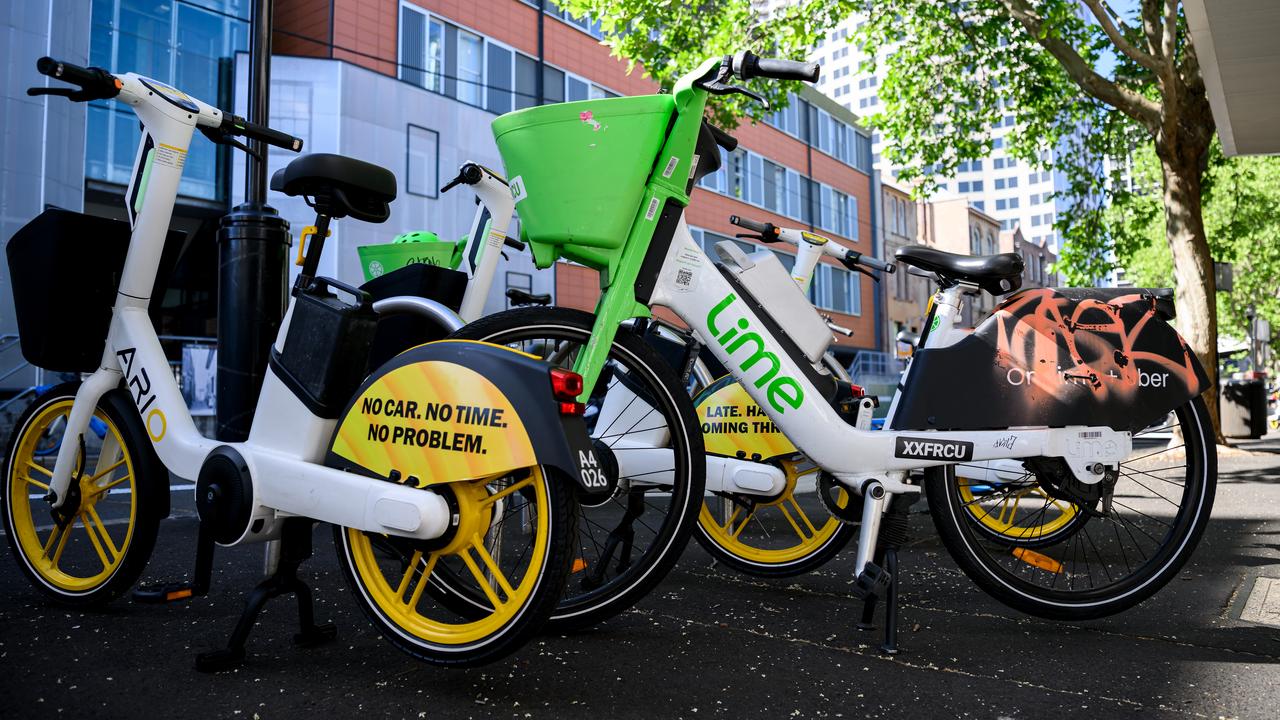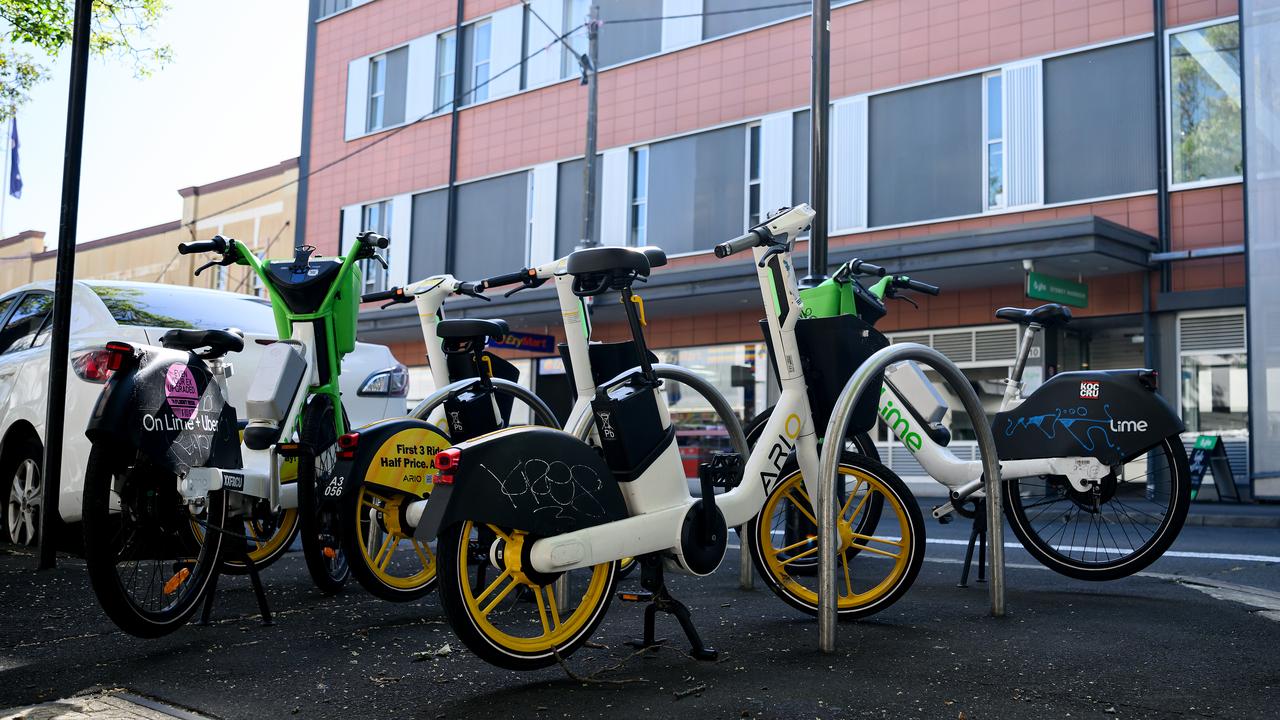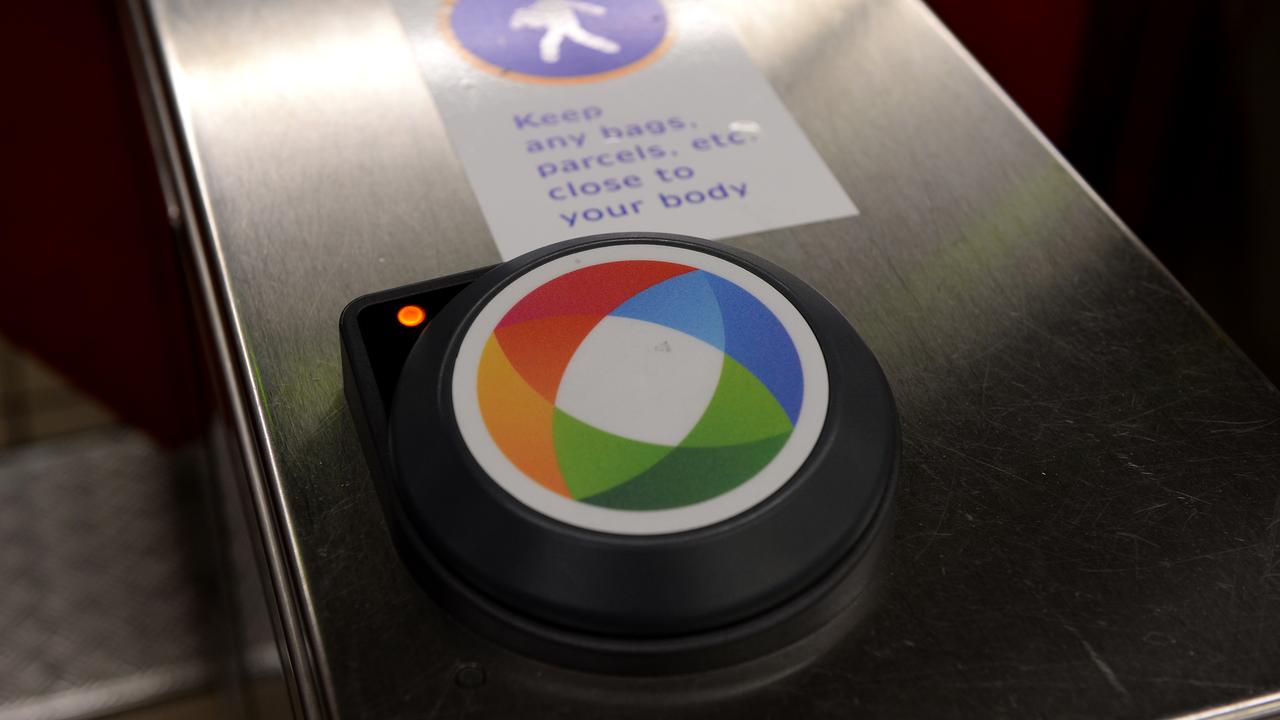
Operators accused of cluttering streets with electric hire bikes have backed "bold leadership" to set parking, helmet and other rules.
Minimum standards unveiled on Wednesday will give councils control over where the bikes can be parked and ridden.
They will be complemented with penalties up to $55,000, with an extra $5500 for each day operators breach removal requirements.
The new norms for e-bike shared schemes were an Australian-first, the NSW government said on Wednesday.

"Shared bikes strewn across footpaths and roads have been an eyesore and a danger to pedestrians for too long," NSW Transport Minister John Graham said.
The benefits of the share-bike schemes include reducing road congestion and helping people connect to public transport.
"But the current voluntary approach to parking and safety isn't working," Mr Graham said.
The operators will pay a fee to fund compliance monitoring, parking bays, infrastructure and a data-sharing platform to monitor use of the bikes they deploy.
Removal orders will come with penalties up to $55,000, with an extra $5500 for each day operators breach requirements.
Penalties of up to $110,000 will apply for people who fail to comply with requests for information to show they meet the required standards.
But the operators are not worried.
"This bold leadership gives operators like Lime the confidence to invest, innovate, and expand long-term partnerships with councils and communities," Lime chief executive Wayne Ting said in a statement.
"Lime supports these changes and sees them as key to unlocking long-term investment in cities like Sydney."

Ario head of government relations Mitch Price told AAP the company supported and helped develop the legislation.
"We welcome the introduction of new regulations to establish designated parking areas and look forward to collaborating with local councils to implement these changes effectively," he said.
The introduction of the legislation to state parliament on Wednesday follows consultation with councils, operators and user groups.
It also acts on recommendations from a parliamentary inquiry into e-mobility devices.
The scheme will be partially funded with money left on Opal cards by interstate and international tourists.
An estimated $70 million is sitting on 17 million Opal cards that have not been used for years.
By tweaking public transport laws in parliament, the government says money untouched for five years could be used for active transport-related initiatives including removing e-bikes from footpaths and building pushbike lockers at transport hubs.
Opal cards are no longer required to use public transport in NSW.
Passengers increasingly use contactless payments on credit and debit cards, phones and smartwatches.







